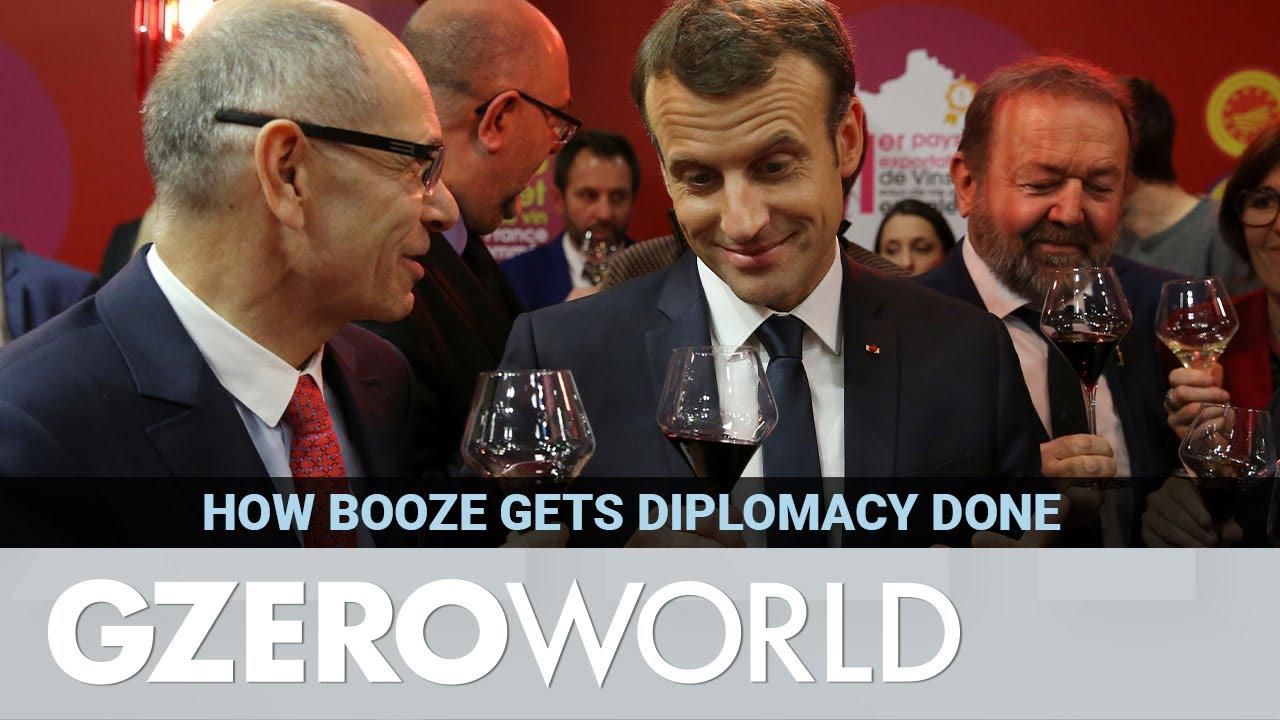July 28, 2021
Why do (most) world leaders drink together? It can get them to agree on stuff they wouldn't while sober. Booze "helps people get cooperation off the ground, especially in situations where cooperation is challenging," says University of British Colombia professor Edward Slingerland. Alcohol, he explains, allows you to "see commonalities rather than just pursuing your own interest," which may put teetotaler politicians — like Donald Trump — at a disadvantage. Watch his interview on the next episode of GZERO World. Check local listings to watch on US public television.
From Your Site Articles
- The (political) power of alcohol - GZERO Media ›
- Podcast: Alcohol, diplomacy & society, from Edward Slingerland's perspective - GZERO Media ›
- Does alcohol help bring the world together? - GZERO Media ›
- Does alcohol help or harm society? - GZERO Media ›
- The global trend towards legalizing marijuana - GZERO Media ›
- How booze made us...civilized - GZERO Media ›
More For You
- YouTube
In this Quick Take, Ian Bremmer addresses the killing of Alex Pretti at a protest in Minneapolis, calling it “a tipping point” in America’s increasingly volatile politics.
Most Popular
- YouTube
Who decides the boundaries for artificial intelligence, and how do governments ensure public trust? Speaking at the 2026 World Economic Forum in Davos, Arancha González Laya, Dean of the Paris School of International Affairs and former Foreign Minister of Spain, emphasized the importance of clear regulations to maintain trust in technology.
- YouTube
Will AI change the balance of power in the world? At the 2026 World Economic Forum in Davos, Ian Bremmer addresses how artificial intelligence could redefine global politics, human behavior, and societal stability.
Ian Bremmer sits down with Finland’s President Alexander Stubb and the IMF’s Kristalina Georgieva on the sidelines of the World Economic Forum to discuss President Trump’s Greenland threats, the state of the global economy, and the future of the transatlantic relationship.
© 2025 GZERO Media. All Rights Reserved | A Eurasia Group media company.
